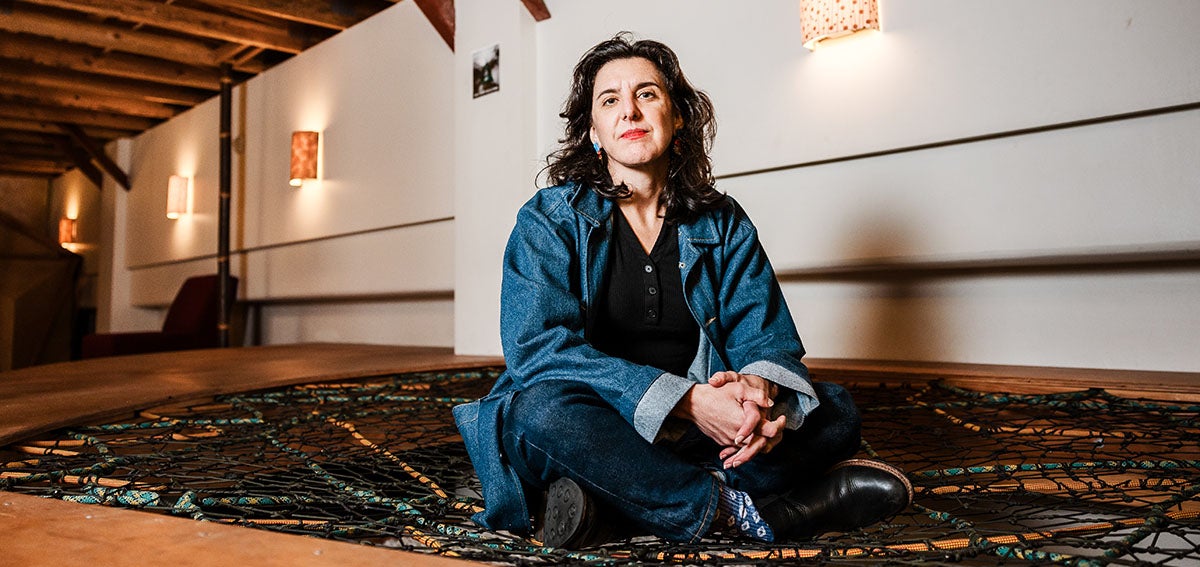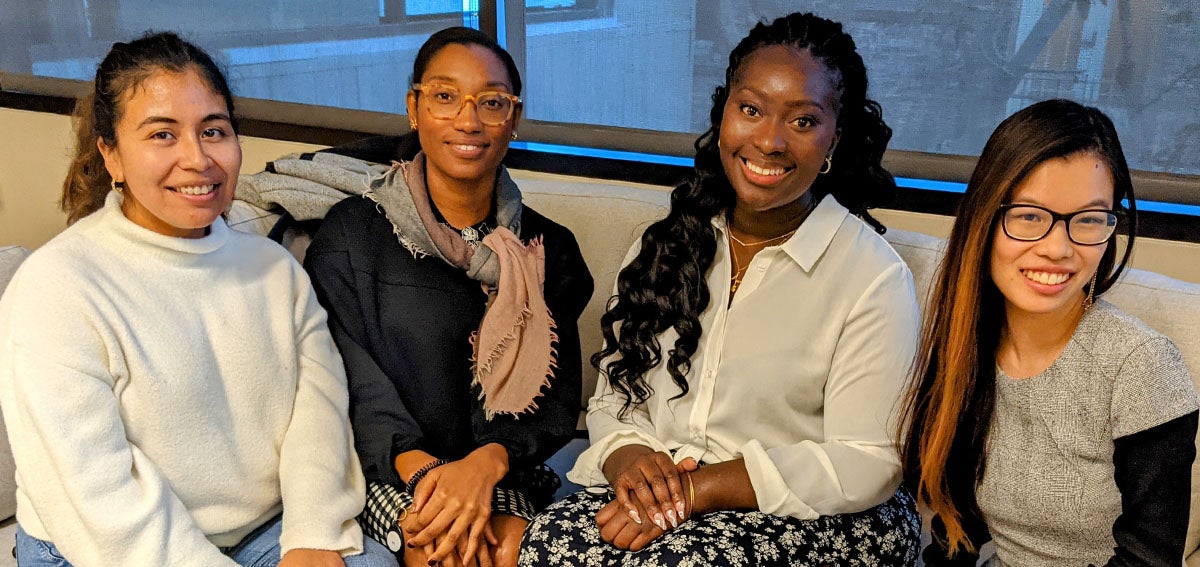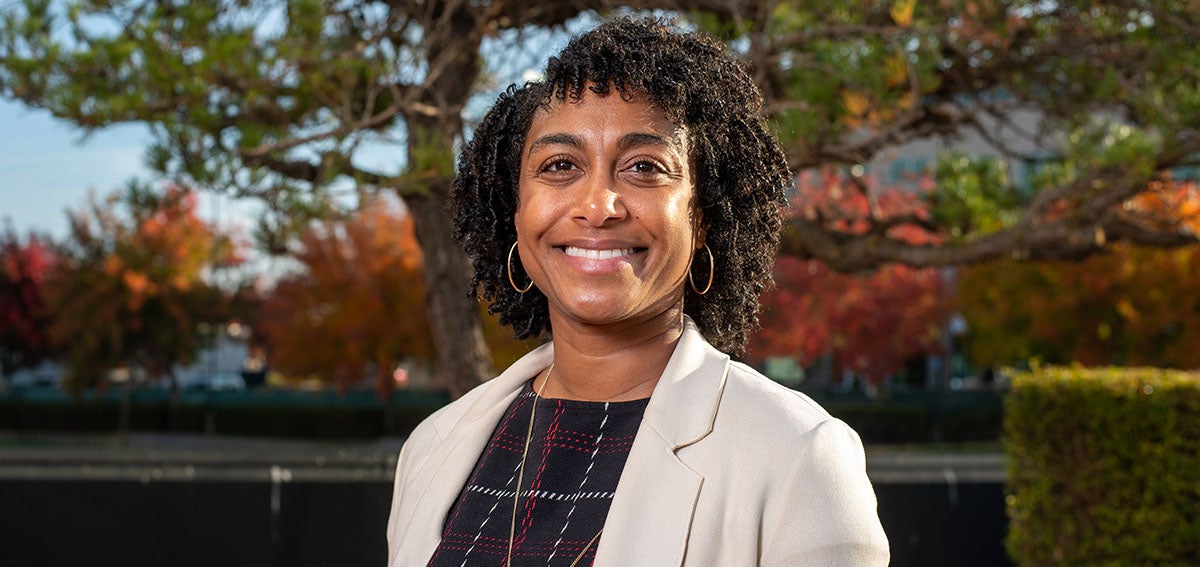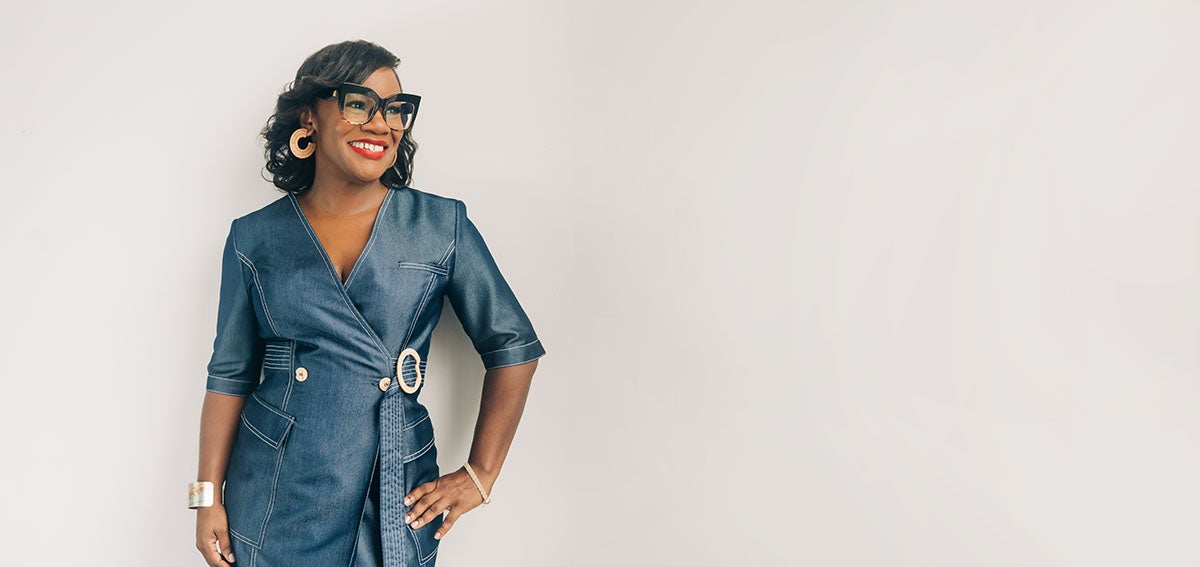
When Kimberly Seals Allers delivered her first child at a top-rated New York City hospital 21 years ago, her wishes were ignored by doctors and nurses. Feeling disrespected and voiceless, she decided to confront the causes and to advocate for equity in pregnancy and childbirth for Black mothers and birthing people.* A journalist by trade, Seals Allers is author of three books on pregnancy, childbirth, and breastfeeding; a technology entrepreneur; and a force to be reckoned with. She is determined to debunk the media narrative that suggests merely surviving childbirth is a noteworthy accomplishment for a Black person. “Despite the mainstream media’s fixation on death and negative statistics, there are models for joy in Black births,” she said.
To counter the negative stories, Seals Allers is hosting a new podcast, Birthright. With support from CHCF, the inaugural season of Birthright lifts up 10 joyful stories that more accurately represent the Black birthing experience. In one episode, Morine Cebert Gators, who learned that she was pregnant shortly after defending her doctoral dissertation, had to obtain prenatal care in a new city. Her determination to find a Black ob/gyn with whom she felt comfortable paid off during a pregnancy that had some complications and a birth experience that she felt was positive and empowering.
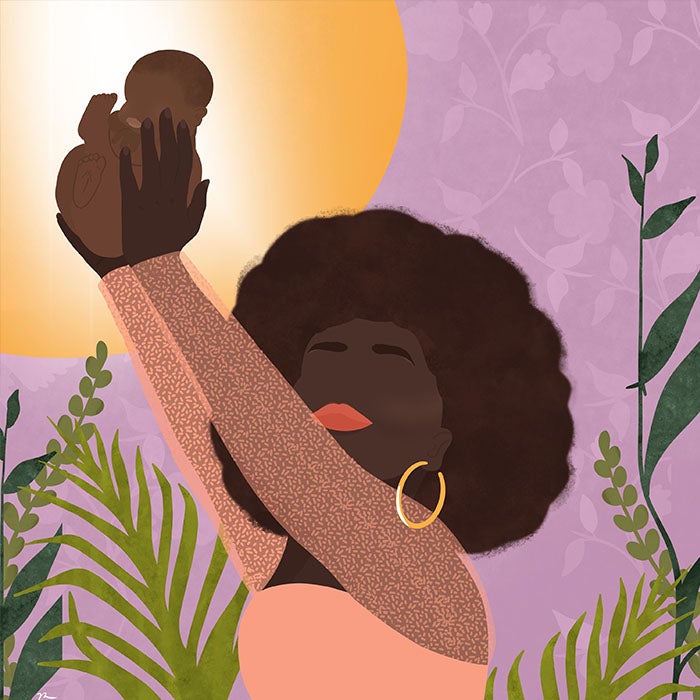
Kimberly Seals Allers’ Must-Follow List for Twitter
“There are so many great people doing great work on Twitter! Monica McLemore is required reading. You should certainly be following Dr. Joia Crear-Perry, president of the National Birth Equity Collaborative, as well as Chanel Porchia-Albert, CEO and founder of Ancient Song Doula Services. The Black Mamas Matter Alliance is essential. And you need to follow Black Breastfeeding Week (August 25–31), because it’s an important part of the equity conversation. I’m proud to be a cofounder of the awareness week.”
Seals Allers is also the creator of the Irth app, a “Yelp-like” platform for mothers and birthing people of color to share reviews and stories about prenatal, birthing, postpartum, and pediatric experiences. Irth aims to end racism and bias in maternity and infant care by democratizing the story of inequities to foster systemic change and catalyze behavioral shifts. The project is supported by CHCF, the Tara Health Foundation, and the Grove Foundation.
I met Seals Allers for a video interview to learn about her vision for storytelling as a key tool in advancing Black birth equity. Our conversation has been edited for length and clarity.
Q: What inspired you to launch Birthright?
A: For some time, I’ve been increasingly concerned about the narrative around Black maternal health. There is a “doom and gloom” theme in the way the mainstream media talk about Black maternal health. They are focused on negative statistics and headlines of high-profile deaths. I was really concerned about what this meant to Black mothers and birthing people when the story being told about us was only negative, always dire, and always lacking joy. We were seeing a lot of dread in the community. People were preparing death documents before they gave birth.
I wanted to start the podcast to put joy into the narrative and lift up positive Black birth stories as a tool for learning. Yes, we need to learn from what went wrong, but we can also learn from the positive birth experiences. I give a lot of credit to CHCF for having that vision as well.
Q: Why did you give the podcast that name?
A: I’m the author of five books, and I’m big on naming, so I thought about birthright as being something that we’re owed, something that we deserve. Our birthright is joy. Our birthright is to have positive experiences and to live through them. I also thought about birthright as two distinct words: How do you birth right? With positive stories, I want people to find a way to birth right, and to reclaim their birthright.
Q: What do you want Black mothers and birthing people to discover when they listen to these episodes?
A: I want Black mothers and birthing people to be inspired by what is possible for them. I want them to pick up some key lessons from the positive stories. Who was there during the birth, and where did it happen? What was the prep work? What was the post work?
The first episode features Whitney Robinson, who had a preterm birth, which she defined as positive. I don’t tell people what a positive birth story is. If you feel it was positive, then it was. Whitney delivered a baby at 25 weeks, predominantly with midwives in the hospital. All the maternal-fetal medicine specialists and the obstetrician were there. It was a very high-risk situation, but that doctor got out of the way and allowed the midwives to support Whitney in birthing her baby in a way that made her feel whole and complete and seen.
The reception to the podcast has been amazing. It has been really exciting to watch its growth, not just in the US but internationally. We get a lot of downloads in the UK, Canada, Belgium, and Germany. I think people need inspiration and that many, many people around the world are tired of hearing the same negative story about Black women and birthing people in birth.
Q: What messages do you intend to deliver to health care providers?
A: I hope that providers who listen will see how they can play a role in positive Black birth stories. I hope they too find lessons and new ways of collaborating by thinking about other models of care in birthing.
Episode nine featured Carla Williams, a New York City ob/gyn who had a positive home birth after having her first child in a hospital. It is pretty telling that she works in the profession and opted not to go back to a hospital for her second or third birth, which she was preparing for when I interviewed her. She talked about what she wished providers would do to improve the birthing experience for their patients. There were so many lessons, and I hope that there is a culture of humility and openness so doctors and nurses can receive them.
Q: You are working on another major project, the Irth app. How do the podcast and app work together to help you recast public expectations about birth equity?
A: I definitely see them as complementary, narrative-shifting projects. Irth is a Yelp-like review and rating platform for Black and brown women and birthing people to find and leave reviews of their ob/gyns, birthing hospitals, and pediatricians. Irth is unique for shifting the birth narrative by shifting power to the people. It’s incredibly community centered.
On the front end, we’re giving the community power to see how other people just like them have reviewed a doctor or a provider. On the back end, we use those reviews to create quantitative data and work with hospitals and providers to address blind spots and identify patterns so they can change as well.
For me, the way that Irth centers a community, combined with the way that Birthright centers positive birth stories, helps move the story of Black maternal health away from the story that we’ve been told, which is that we’re dying, we’re not having healthy pregnancies, and we’re not having healthy babies. For many years, the story was that all of this was our fault.
Q: How much has your journalism background informed your thinking about the tactics and strategies you use in your birth equity advocacy?
A: I think the media’s job is to focus on solutions and to be more thoughtful in the reporting and telling of stories. By shifting away from the negative statistics and toward solutions, the media can help educate providers and not just push the narrative that Black women are coming up short.
When we think about birth equity, most people talk about clinical models and the need for more data and research – and, yes, that is all true. But the power of storytelling cannot be overestimated. Storytelling is a powerful tool for shifting minds and behaviors, shifting policies, and ultimately shifting cultures and societies. Even when we’re talking about a clinical matter, we should never forget that. Humanity dies without stories.
* We use the term “birthing people” to recognize that not all people who become pregnant and give birth identify as a woman or a mother.
Authors & Contributors


Melanie Espinosa
Melanie Espinosa is a self-taught illustrator, Latina, and mom from New York City. She aims to represent communities of color, amplify the voices of women, and normalize breastfeeding through her art.


